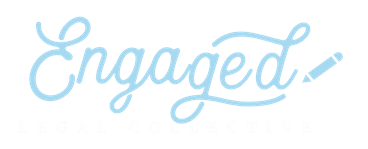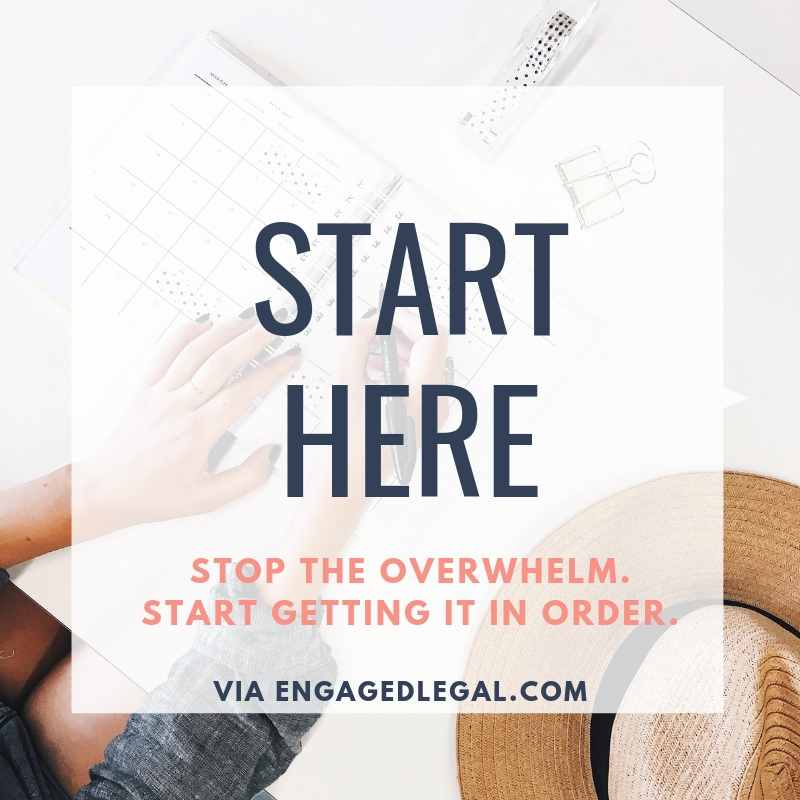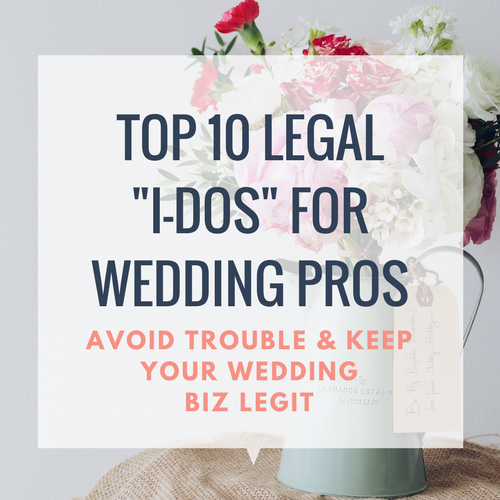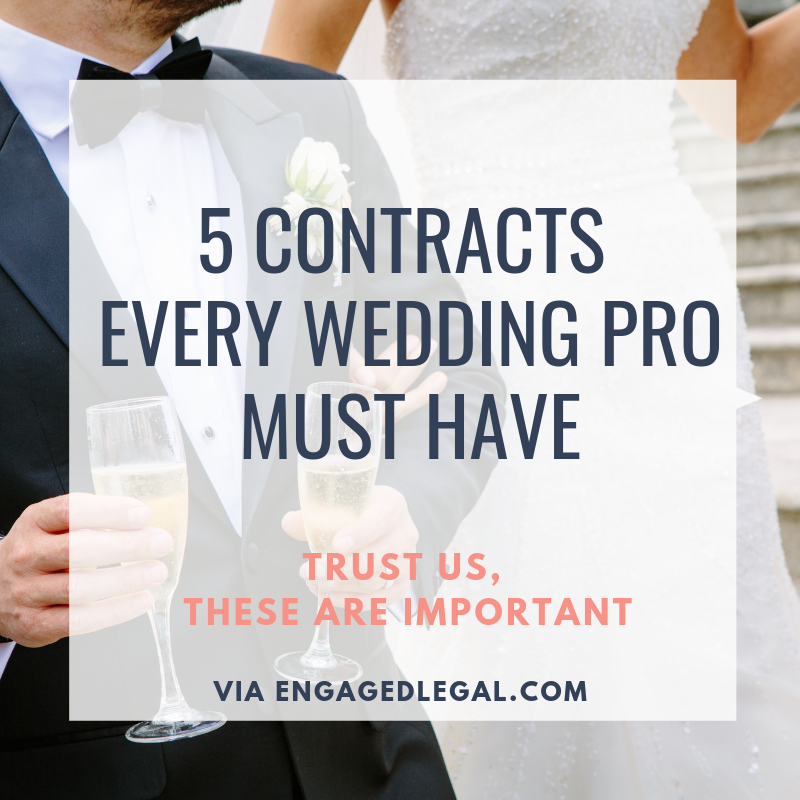Someone Copied Me, Now What?
/In this day and age, it’s going to happen at some point. Someone is going to copy your hard work.
And whether it’s flagrant copying or just enough so you know it’s your content, it’s going to piss you off. Big time.
But depending on the degree of copying, the proof we have, your preventative steps, and— to be completely frank— the resources you have at your disposal, we need to address copying in different ways.
I worked on this article for a few weeks because I want to provide you with the REAL DEAL on copying— not just the legal “HERE ARE YOUR RIGHTS!” side, but that actual “here’s how this works practically” side of things. No copying situation is the same, and there are a LOT of moving parts— and you need to consider all of those spinning plates. So let’s dive in.
OK. Let’s figure out what this actually is.
There are different degrees of copying. Often the hardest part is figuring out to what degree you’ve been copied. Consider these different situations:
A competitor keeps launching courses on the same topics as you
A planner in another state uses the same fonts, colors, and website theme as you
Someone used your image in a mood board without credit
A new photographer took your images and used them in their portfolio
A big company printed your photo on the side of their truck…. without permission
Someone made copies of your course materials and posted them for free online
All of these situations may constitute a form of “copying,”— but what do you do about it? And what happens in the REAL WORLD?
Preventative step: Register copyrights and Trademarks.
Ok, ok, so this is a pre-step. But if you are worried about people copying, REGISTER YOUR COPYRIGHTS FOLKS.
while yes, you legally get a copyright in anything you create and “fix in a tangible medium” (e.g. someting you make real-life, and not just floating around in your head) you can’t utilize the legal system without registering the copyright. You can’t sue on a copyright until the registration has been GRANTED (new clarity on this rule as of March 2019, thank you Supreme Court!) and it can take around a year or more. 😱 An expedited registration costs $800. Plus, registering a copyright before copying occurs is the only way to get compensated with those “big money” payouts or attorneys fees. So just register them up front to get more leverage and avoid other shenanigans.
And while it won’t stop copycats in their tracks, a nice display of “© 2019, MyCompany" serves as a nice reminder that you take your work seriously. And guess what? You can use this notice — the “circle C” — without a registration.
If you’re worried about someone copying your business name or the name of your programs, presets, or signature offerings? TRADEMARK THOSE THINGS, BABY. And use that nice little “TM” or “Circle R” symbol.
Determine: Is it actionable copying, or is it idea-repurposing?
Let’s be frank: there’s a HUGE gray area between someone just being unoriginal versus what constitutes “legally actionable copying” (things you can sue someone for, namely, infringement of some kind).
Why is this? Well, it’s because the legal system wants to encourage creativity. It wants people to take things, re-shape them, and create something new. It encourages transforming another idea and making into some new, creative thing.
Kind of annoying if you’re on the side where your stuff is clearly getting “repurposed” by the same person over… and over… and over.
So where is the line? Honestly, that’s the million dollar question. It’s not “If you change all but 10%,” it’s not “if you flip the photo backwards!” and it’s definitely not “if you give credit" (y’all, remember, GIVING CREDIT DOES NOT NEGATE COPYRIGHT INFRINGEMENT! If you don’t have a license to use a photo, “giving credit” on instagram is not going to save you!). All we have are lots of examples of what does and does not constitute a “good” copyright claim, as played out in the court systems.
Here’s some things you CAN potentially sue for:
using a photograph YOU took without getting your permission
using a photograph, image, design, or other physical or digital creation in a way that exceeds the permission you gave someone
another vendor or client stealing a file/ hard copy and executing your design, drawing, or written plan
people using a name that is very similar/ really confusing with yours
another business using your logo or a logo that looks a LOT like yours
someone copying and pasting from your website, social media, or ad onto their website, social media, or ad
Here’s some things that are a LOT harder to “win” if you pursue them in court:
someone recreating your event or floral designs
another photographer staging photo shoots with the exact same poses you use
another designer using the colors and fonts that you use in your designs
someone using a general idea you came up with* (there’s a few caveats here, but just go with the general concept that if it isn’t written down or pulled out of your brain and put on paper somehow, you probably aren’t going to be able to sue on it).
One of the trickiest things to decide is if you have something that you can actually make a claim over (notice I didn’t say WIN yet).
Sometimes, you don’t have any reason to request someone back off. If you’re doubting whether you are overanalyzing or if you really are being copied, ask someone familiar with the industry what their thoughts are. Don’t ask a bestie— ask someone you know , but who doesn’t necessarily feel “protective” over you. Ask them to shoot you straight. Be open and listen to what they have to say.
Consider reaching out*
Before you bring in/ pay for the big guns, (lawyers, y’all) consider using your own voice to advocate for yourself.
And while it’s scary, a simple email or letter can go a long way.
DO:
Draft a clear, CONCISE letter stating your concerns.
Directly ask for what you want— “Please remove my photograph” or “Please tag my account if using this image.”
In situations where we might not have a LEGAL claim, you can say “It looks like you’re getting a lot of inspiration from my work— that’s awesome! However, I’d like credit for the designs that I have put so much time and energy into creating.”
Find a physical address if possible and send a signed letter. That has a lot more impact.
DON’T:
Don’t Be accusatory: “You copied me and you’re a bad person!” isn’t a great way to get anything accomplished. I like to use the words, “You may not be aware, but….”
Don’t be emotional, and instead just summarize the facts of the situation.
Don’t use language that diminishes your request. “LOL!” or “Hah hah!” or “I’m soooooo sorry to ask” are included here. You shouldn’t feel bad for asking someone not to be at worst an @$$hole and at best a doofus.
*BIG CAVEAT - unless it’s a trademark situation, and then contact a lawyer immediately — not doing so can jeopardize your trademark rights.*
And photographers: if you’re seeing people use your images without permission, you can send a demand letter for a licensing fee. I kid you not. Getty Images provides a great resource about calculating the amount of a licensing fee, OR you can use your own schedule of fees (especially if you sell stock photos).
One thing I want to note here is that by sending a letter, you’re potentially helping prevent someone from creating a bigger mistake in the future, and getting a nastygram demanding thousands of dollars from a company such as Getty, a record label, or an overly-aggressive attorney. The person may honestly be new, not know what they’ve done, and need to learn— albeit the hard way— that they have committed a big old no-no. A gentle yet firm communication about this can actually be helpful to them in the long run.
Do a cost/ benefit analysis
Maybe after you reached out, your copier ignored you— or told you to pound sand. Here’s where things get deep, an usually where I end up having a frank conversation with people. Because in the end, it often comes down to one thing:
Money.
Pursuing this further might mean you have to bring in a lawyer. And lawyers….. well, they cost money. A good bit.
When considering getting legal help, we need to weigh the following things:
Is there a possibility you can “win” this — either in a settlement outside of court or actually in court? Even if you don’t have a legally “winning” argument, you may be able to negotiate something to keep everyone from having to go to court and duke it out.
How much is this going to cost you? (a Cease and Desist letter from an attorney can cost $250 and up, a full-to-trial copyright infringement suit is realistically $25k and up, and a trademark suit can vary based on the location but budget $20k+).
How much can you realistically recoup here? What is this work worth to the legal system?
DID YOU REGISTER YOUR WORK (copyright or trademark) so you can recoup attorneys fees? (BIG BIG BIG WAY TO ASSIST YOU IN GETTING MONEY. I can’t stress it enough— REGISTER your work, people! Because even if you only have $350 in actual “damages”— aka money that we can prove you lost— you could get TENS OF THOUSANDS plus attorneys fees if things are registered.)
What about the principal of the matter? Are they “notorious copiers”? How do you feel?
Leverage PR if you need to.
Especially if you’re dealing with a larger company, don’t be afraid to stir the PR pot. No company wants to be known for stealing the work of small companies, (hey Urban Outfitters…) so talk to your attorney about leveraging the PR aspect of this situation. A good PR strategy can help speed up a settlement offer, get you more money, or even just make it known that this person is being a JERK.
However, keep in mind that a PR strategy needs to be reviewed by an attorney or other professional to ensure there are no issues with defamation or slander. The last thing you want is for your copycat to have a legal claim against you!
What happens if you DO sue
What does a lawsuit actually look like? Well, that’s really a post all to itself.
However, in short: paper. LOTS of paper. Lawyers will write a lot of long and boring documents. You’ll be asked to review them (try not to fall asleep). There will be a lot of phone calls an emails back and forth between your lawyer and the other lawyer. You will need to answer questions on paper (called “interrogatories”) and maybe in person (“depositions”). There will be settlement offers and rejections.
Each side will get to see the other’s documents during a process called “Discovery,” including emails, papers, records, files, and other information. Spoiler alert: no smoking guns or “shocker moments” actually happen at trial, since you see everything in advance!
For most of a lawsuit, it’s literally just you waiting. Half the time lawyers argue about things, the client doesn’t even need to be there! So really, it’s very boring stuff. But if the case does end up going to trial— which is something like 5% of cases-- you’ll need to attend. It will probably be only a few hours actually spent in the actual courtroom.
In the end, it comes down to YOU.
Remember that in the end, you’re in the driver’s seat. It can feel very isolating and violating to have someone steal your hard work. People don’t always “get” why it’s so upsetting that someone is taking your creations. It’s even more frustrating when you realize that there may not be “good” options, or that you “messed up” by not registering.
However, remember this: as long as you’ve done what you can with the resources you have available at the time, be proud of yourself. Because you get to be the one who decides if it’s the right choice to pursue someone for copying you. You get to be the one who decides if it’s the right choice to wash your hands of it and walk away, lesson learned. You are the one who gets to decide what resources to delegate where— both physical resources and brain space.
Empower yourself. You’ve got this.



















